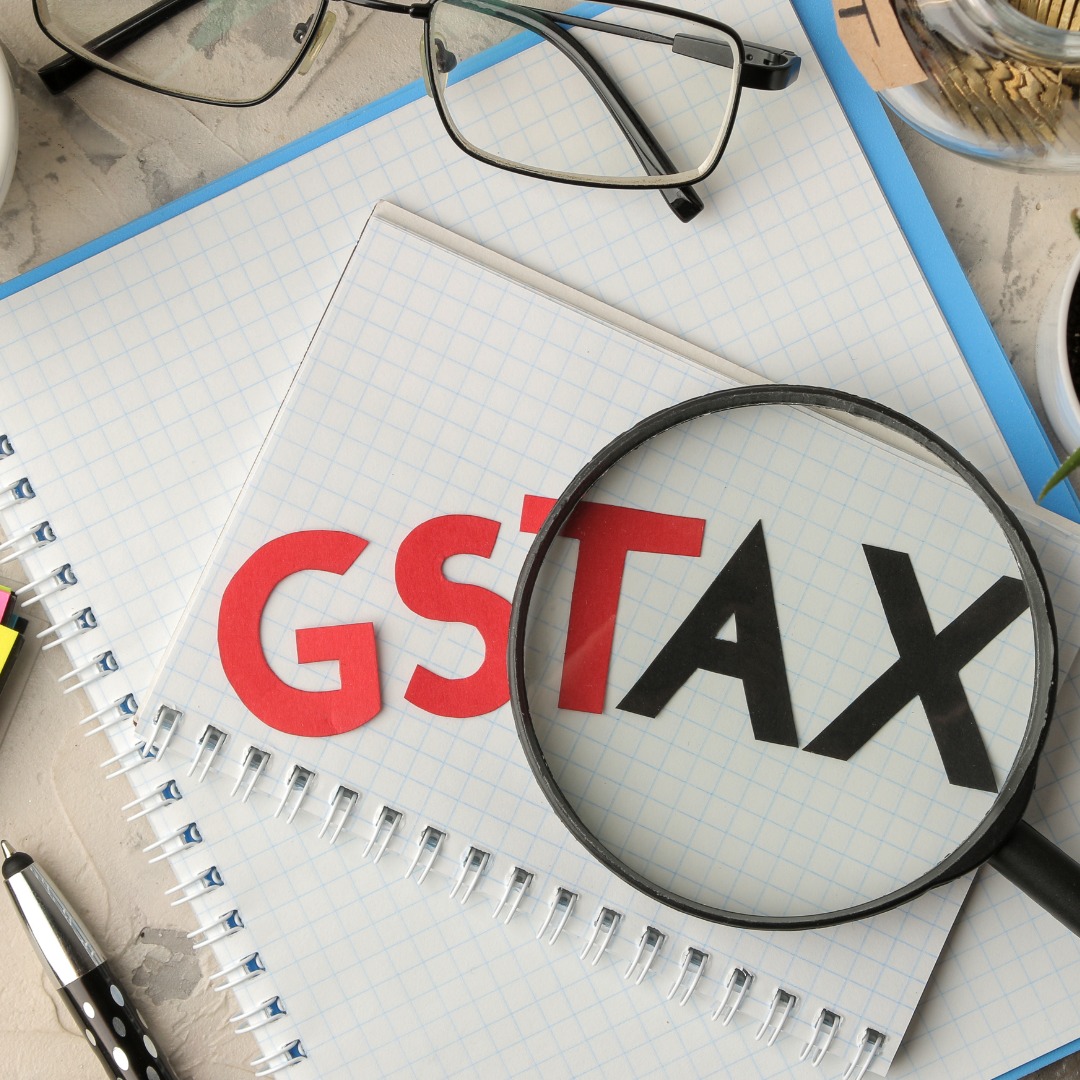
India’s tax environment has undergone a dramatic change with the implementation of the Goods and Services Tax (GST), which has streamlined the tax code and unified indirect taxes across the nation. Following the GST regulations is essential for e-commerce companies to operate lawfully and stay out of trouble. The main facets of GST compliance for Indian e-commerce companies will be discussed in this article.
What is an online seller?
Individuals or companies that sell goods or services online or through electronic networks are known as e-commerce sellers. They reach clients across geographic borders by operating in the digital sphere. Sellers on e-commerce may be sole proprietors, small companies, or multinational corporations.
GST Registration Desired for Online Retailers
Whether or not e-commerce sellers provide goods or services determines whether the GST applies to them.
● A supplier of goods is subject to GST, and these sellers are not eligible for an exemption based on turnover.
● GST only applies to service providers whose annual revenue is more than Rs 20 lakh.
● Providers of services specified in the CGST Act’s section 9(5) are not subject to GST. Among them are:
○ Providers of passenger transport via online retailers such as Uber, Ola, etc.
○ Accommodation providers via aggregator sites such as Yatra.com, etc., unless the provider is required to register under Section 22(1) of the CGST Act
○ Providers of housekeeping services via aggregator platforms like Urban Company, such as plumbers and carpenters, unless the supplier must register under Section 22(1) of the CGST Act.
○ Providers of restaurant services aside from those offered by eateries, bars, etc., providers of restaurant services are situated on designated premises. Certain locations provide lodging with a declared tariff value of more than Rs. 7,500 per unit per day, or the equivalent.
Sellers in the aforementioned category who are subject to GST are required to register as registered sellers with the government. Such an individual must also register as a regular taxpayer. A seller of goods or services via an online retailer is not eligible to register under the composition scheme.
TCS’s applicability to e-commerce businesses
When paying e-commerce suppliers, companies such as Amazon, Flipkart, Snapdeal, and others must collect tax at source at a rate of 1% on the total value of the supplies they receive. The TCS would be imposed by the e-commerce operator and subsequently transferred to the government. The e-commerce seller will be paid after deducting TCS at a rate of 1%; the e-commerce seller must claim this TCS as credit when submitting their GST returns.
TDS’s applicability to online retailers
When crediting an e-commerce seller’s account or making a payment to them, e-commerce operators must deduct tax at source at a rate of 1% of the gross sales amount of the seller, whichever comes first. If the e-commerce supplier’s gross sales revenue from products, services, or both in the preceding year was less than Rs. 5 lakh, the e-commerce operator is exempt from having to deduct TDS. Additionally, the e-commerce operator must receive the PAN or Aadhaar from the e-commerce seller. The e-commerce operator will deduct 5% of the sale price if the seller fails to provide his PAN or Aadhaar. If the online seller is not a resident, no TDS will be withheld.
GST Returns to be Filed
Under the GST Act, suppliers are required to file the following returns:
GSTR 1 –The registered supplier of goods and services, or both, is required to provide a monthly return statement of outgoing supplies, known as GSTR 1 or GSTR-1.
The government introduced the QRMP program to make the process of filing GST returns for small businesses easier. A registered online vendor who chooses to participate in the QRMP program may submit Form GSTR-1 every quarter if they meet the following requirements:
● In its most recent fiscal year, the registered online seller’s revenue was less than Rs. 5 crore.
● From the following quarter onward, the registered online seller will not be eligible for this Scheme if their total revenue for the current fiscal year surpasses Rs. 5 crore in any one quarter.
The eleventh of the following month is the deadline for filing GSTR-1 monthly. The 13th of the month that follows the quarter is when submissions must be made. By the 13th of the following month, quarterly filers have the option to provide sales information for the first two months of the quarter in an Invoice Furnishing Facility (IFF).

GSTR 3B – A registered e-commerce seller is required to file GSTR-3B, a consolidated summary of inward and outward supplies, either monthly or quarterly, contingent upon their annual turnover. The QRMP scheme may be filled quarterly if the online seller has chosen it and has an annual revenue of less than Rs. 5 crore.
The deadline for submitting the GSTR-3B is the twentieth of the subsequent month, in this case, February 20, 2022, which also happens to be the deadline for January 2022 for registered e-commerce sellers whose annual sales exceed Rs. 5 crore.
The 22nd or 24th of the following quarter, or from October 2021 to December 2021, depending on the state or UT, is the deadline for filing the GSTR-1. The deadline is January 22/24, 2022, for e-commerce sellers who are registered and have an annual revenue of less than Rs. 5 crore.
GSTR 9 – If the annual turnover of an e-commerce seller surpasses Rs. 2 crore, they must file an annual return called GSTR 9. The 31st of December, the year after the relevant financial year, is the deadline for filing GSTR-9 for the current fiscal year. For example, December 31, 2022, is the deadline for filing GSTR-9 for FY 2021–2022.
GSTR 9C – On a self-certification basis, all registered e-commerce sellers with a turnover exceeding Rs. 5 crore in the financial year are required to provide a reconciliation statement in form GSTR-9C.
The GSTR-9C and GSTR-9 deadlines are the same. As a result, the GSTR-9C needs to be submitted by December 31st at the latest, following the relevant audited financial year.
Rules for GST registration for individuals subject to TCS
All e-commerce businesses are required by Section 24 of the CGST Act to obtain GST registration. Anyone who needs to pick up TCS must electronically apply for registration using form GST REG-07, either directly from the GST portal or from a facilitation center the Commissioner has designated. The application must be properly signed or verified using the Electronic Verification Code (EVC). According to CGST Rule 12(1A), the e-commerce operator must include the name of the State in part A of the REG-07 form if they are not physically present in the State or Union Territory where the operations are being conducted. Furthermore, if the State listed in part A differs from the State mentioned in part B, the State where the principal place of business is located must be specified.
Inventory as well as Invoicing Logistics
For each supply, each supplier would give a GST-compliant invoice. Regarding sales through e-commerce operators (ECO), the ECO creates the invoice based on the seller’s information, which must be disclosed when providing returns. Additionally, the invoice enrollment portal should be used by the supplier or ECO to generate IRN for B2B invoices when the e-commerce supplier is worried about compliance with e-invoicing regulations. Furthermore, for more information on this, see our earlier article on e-invoicing. When moving inventory under the GST laws from one state to another, there is a specific invoicing process that must be followed.
When Is The Online Store Owner Required To Pay GST?
Three parties engage in an E-Commerce transaction: the supplier, the buyer, and the E-Commerce operator. Two separate transactions determine the applicability of GST provisions: For the supply of goods or services, between the buyer and supplier and For the use of the marketplace, a commission is paid between the supplier and the E-Commerce operator.
Both of these transactions are subject to an e-commerce operator’s GST charge. The e-commerce operator must pay the GST on behalf of the suppliers for the following specific transactions, which are notified under sections 5(5) of the IGST Act 2017 and 9(5) of the CGST Act 2017:
| Sl. No | Description of Supply of Specified Service | Supplier of service |
| 1 | Passenger transportation via motorcycle, motorcar, maxi cab, and radio taxi | Anybody (HUF, individual, etc.) (Central Tax (Rate) Notification No. 17/2017, dated June 28, 2017) |
| 2 | Offering lodging in establishments such as hotels, inns, guest houses, clubs, campgrounds, or other businesses intended for residential or lodging use | Anybody, except those who must register by CGST Act section 22(1) (Notification No. 17/2017-Central Tax (Rate), dated June 28, 2017) |
| 3 | House-keeping, such as plumbing, carpentering, etc | Any person, except those who are liable to obtain registration under section 22(1) of the CGST Act (Notification No. 23/2017- Ce |
Final Thoughts
Integrating an online retailer into the GST framework improves tax compliance by thwarting tax evasion and guaranteeing openness. E-commerce operators must remain up to date on GST regulations to maintain their credibility as the sector grows. They also need to be aware of the GST that applies to them to support economic growth.
